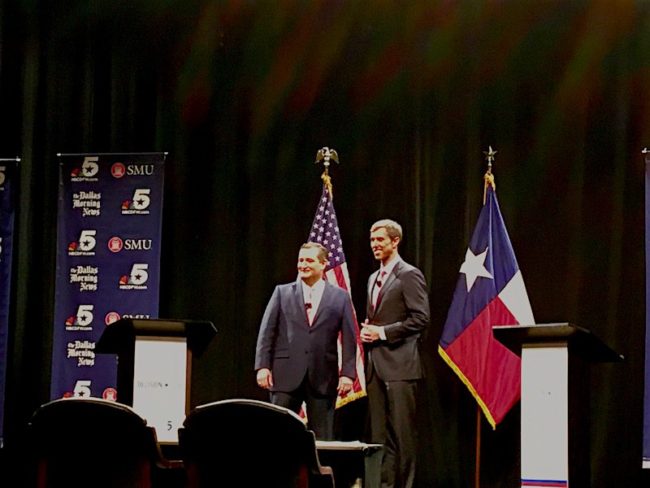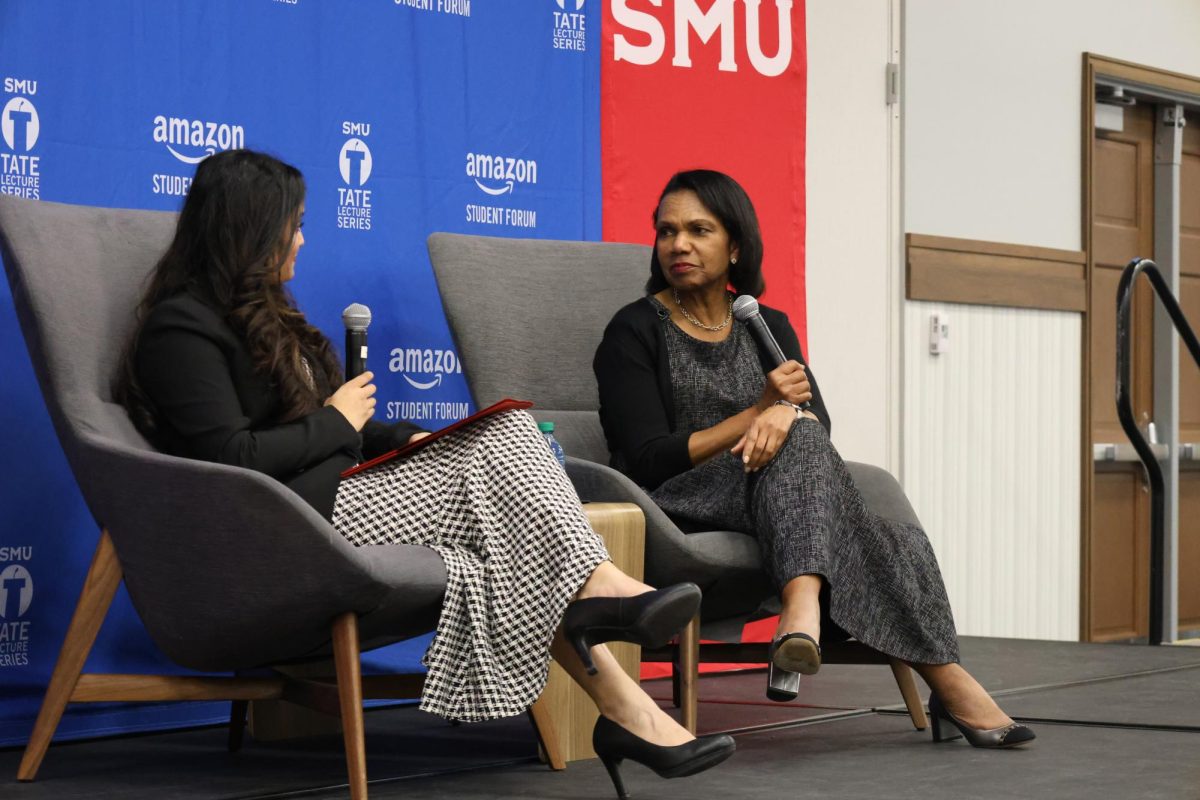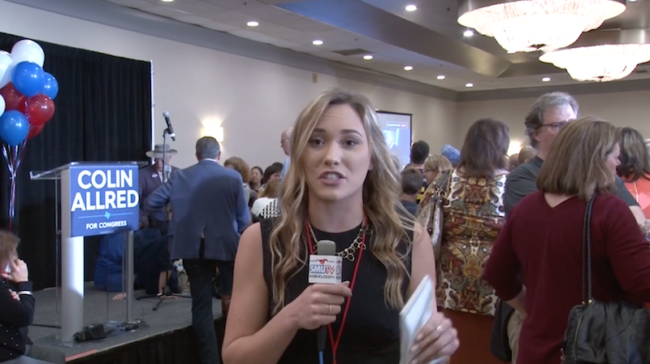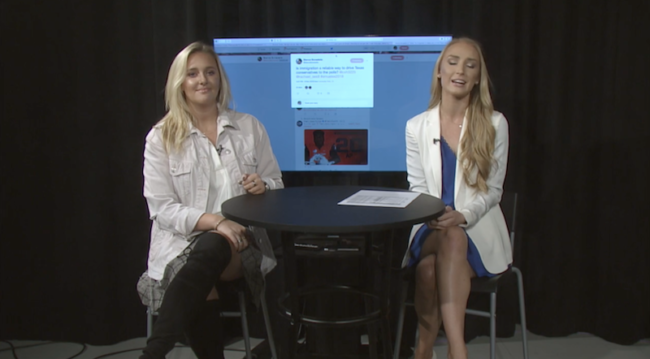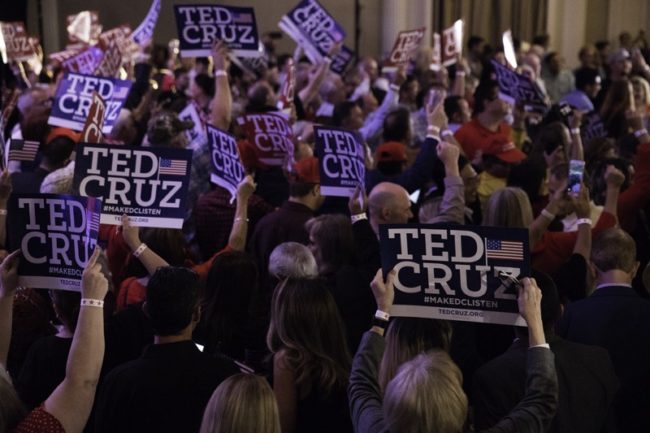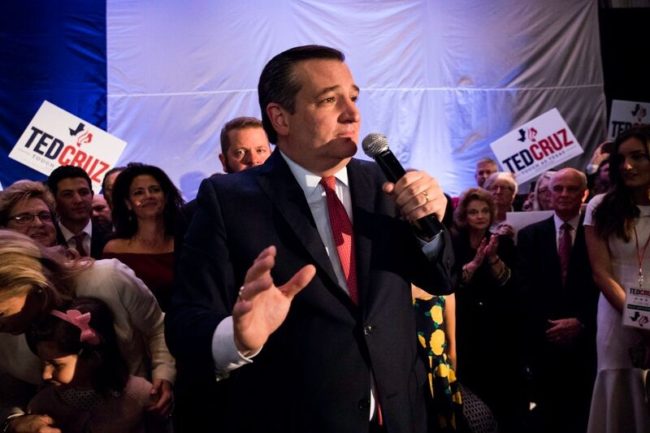At 6 p.m. Friday in SMU’s McFarlin Auditorium, Beto O’Rourke and Ted Cruz participated in the first of three debates for the Texas U.S. Senate seat. The debate, moderated by Gromer Jeffers of the Dallas Morning News and Julia Fine of NBC5, focused on domestic policy issues. Democrat O’Rourke faced off against Republican incumbent Cruz on immigration, healthcare, police brutality, Second Amendment rights, President Trump and the Supreme Court nomination of Judge Brett Kavanaugh.
Here are Beto O’Rourke’s highlights from the debate
On Immigration
O’Rourke stressed Dreamers and immigrants deserve a path to American citizenship.
O’Rourke claimed Texas, as the defining border state, has a unique opportunity to take the lead on reforming immigration laws.
He suggested we begin by “freeing Dreamers from the fear of deportation by making them U.S. citizens so they can contribute to their full potential.”
O’Rourke claims the alternative–deporting 11 million undocumented immigrants from this country–will cost “hundreds of billions of dollars” and inflict “a stain on our conscience.”
Cruz accused him of “fighting for illegal immigrants and forgetting millions of Americans,” but O’Rourke responded by pointing out that Cruz had shown legislative support for building a $30 billion wall that would infringe on the properties of Americans living along the border.
On Healthcare
He refused to waver on his support for universal healthcare coverage.
Texas has long had the highest uninsured and maternal mortality rate in the country, and with his opponents campaigning on the repeal of Obamacare, O’Rourke stated he saw no way to repeal the Affordable Care Act without further endangering vulnerable people.
Instead, O’Rourke said he plans to improve and stabilize the Affordable Care Act, and expand programs like Medicaid so that more people have access to healthcare.
He claimed his objective was to achieve “universal, guaranteed, high quality healthcare for every child, every woman, every man, in this state and every state in the union,” standing by his previous position, despite criticism from Cruz who responded by stating, “Socialized medicine is a mistake, and it would hurt the people of Texas.”
On Gun Control
O’Rourke insisted he could support the Second Amendment and still call for gun control.
Cruz claimed his opponent wanted to “write the Second Amendment out of the Bill of Rights,” but O’Rourke strongly refuted, saying, “I fully support the Second Amendment.”
He said Texas needed a Senator who would defend the right to bear arms and protect the lives of our loved ones. He noted the reduction of gun violence in states that adopted universal background checks.
On the kinds of weapons that have been utilized by civilians to commit mass acts of violence, O’Rourke said, “Weapons of war belong on the battlefields, not in our schools, churches, concerts or public life.”
“Thoughts and prayers, Senator Cruz, are just not going to cut it anymore,” Congressman O’Rourke said, as he stressed the need for meaningful action.
On Police Brutality
When called anti-police, O’Rourke clarified his comments on “the new Jim Crow” and stood by his claim “there is nothing more American” than peaceful protest.
Cruz accused the Congressman of calling police officers “the new Jim Crow,” misrepresenting O’Rourke’s statements about racial injustice in the criminal justice system.
“I did not call police officers modern day Jim Crow,” O’Rourke said, before acknowledging the recent violence against police officers in Texas, but insisting police officers had a responsibility to serve and protect everyone.
“If African Americans represent 13 percent of the population in this country, and they represent one-third of those who are shot by law enforcement, we have something wrong,” O’Rourke said.
When confronted about his support for the NFL national anthem protest, he compared the demonstration against police brutality to a history of nonviolent struggles in this country for racial justice. O’Rourke reiterated his position:
“To peacefully protest that injustice nonviolently, and to call attention to that…so that those in positions of public trust and power will finally do something, standing up not just for your rights, but everyone’s rights in this country, there is nothing more American than that.”
On Supreme Court Nominee Kavanaugh
Beto O’Rourke criticized Brett Kavanaugh’s track record and suggested Kavanaugh’s nomination would be particularly detrimental for Texans.
O’Rourke criticized Cruz for his history of supporting nominees who believed in conversion therapy, questioned the decision of Brown vs. Board of Education to integrate schools, and saw transgender children as part of “satan’s plan.”
O’Rourke suggested Kavanaugh had a troubling history with voter rights protection, Roe v Wade, and gay rights, which would be detrimental for a state where it is possible to fire someone for their sexual orientation, is ranked last in voter turnout, has the highest maternal mortality rate in the country.
“We need a Supreme Court justice who will decide in favor of people and for their rights, as they have been decided by precedents and under the constitution, and in Brett Kavanaugh, we do not have that justice,” O’Rourke said.
On his past
He rejected claims that he ran from the scene of his 1998 drunk driving arrest, and suggested that good can come from the mistake.
O’Rourke was asked to address a Houston Chronicle report that a witness claimed he tried to flee the scene of his drunk driving accident. He responded by insisting, “I did not try to leave the scene of the accident, though driving drunk, which I did, is a terrible mistake for which there is no excuse, justification, or defense.”
After his arrest, he was referred to a misdemeanor diversion program instead of conviction and a potential criminal record. He said, ”I’ve made the most that I could of my second chance,” but acknowledged than many people of color are not offered the same opportunity he was.
“What I do know is that, as a white man in this country, there is a privilege that I enjoy that many African American men and women do not,” he said.“Everyone deserves a second chance, and if my experience can contribute to an understanding that allows me to work with Republicans and Democrats alike on real and meaningful criminal justice reform to ensure that everyone is able to live to their full potential, and no one’s mistake defines them for the rest of their life, that is something good that has come out of a terrible decision that I made.”



